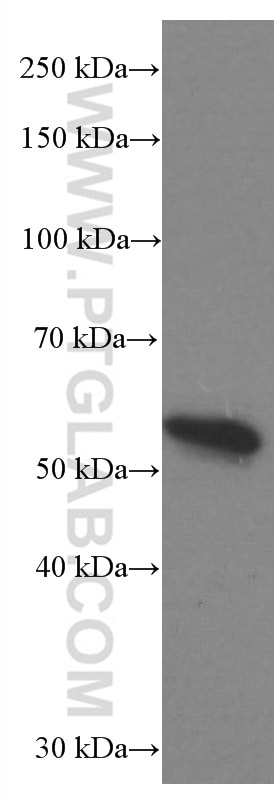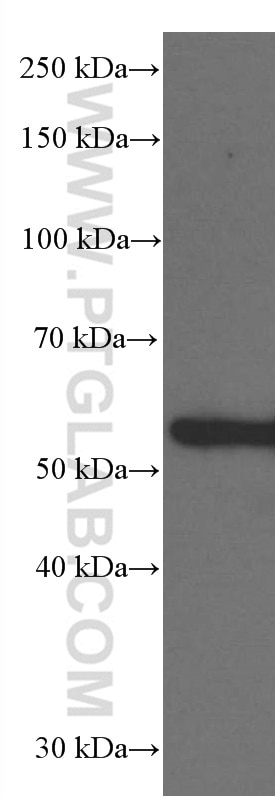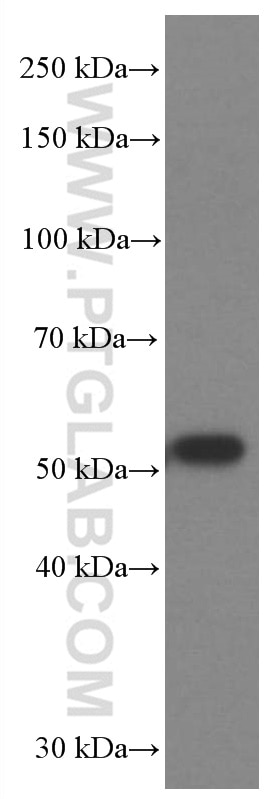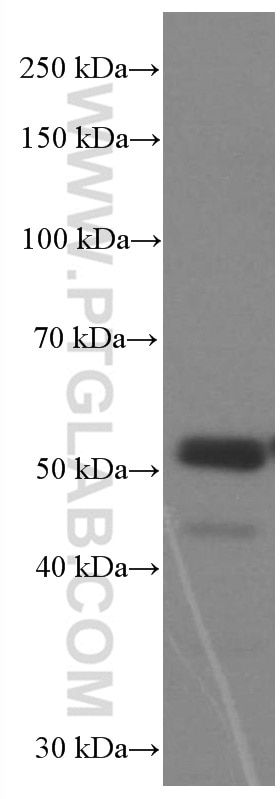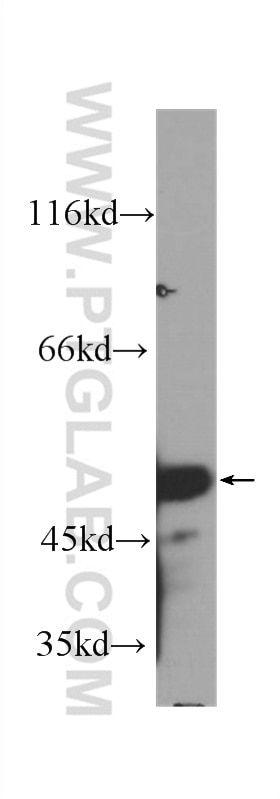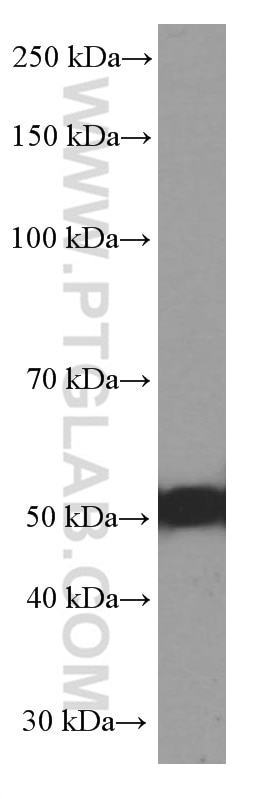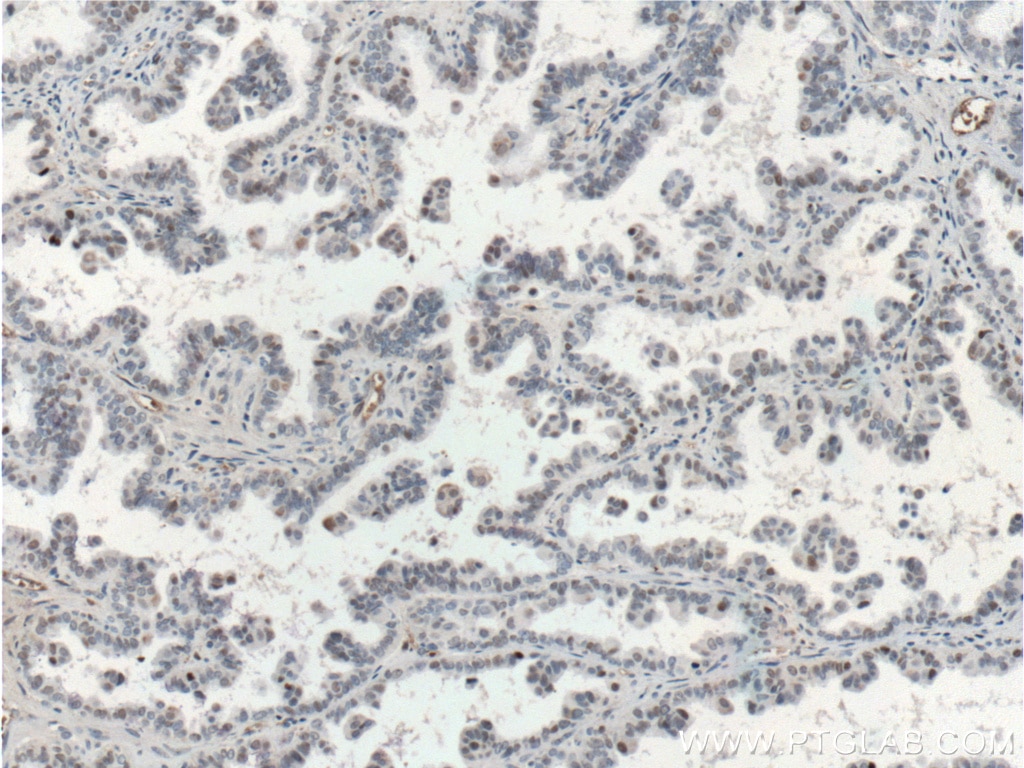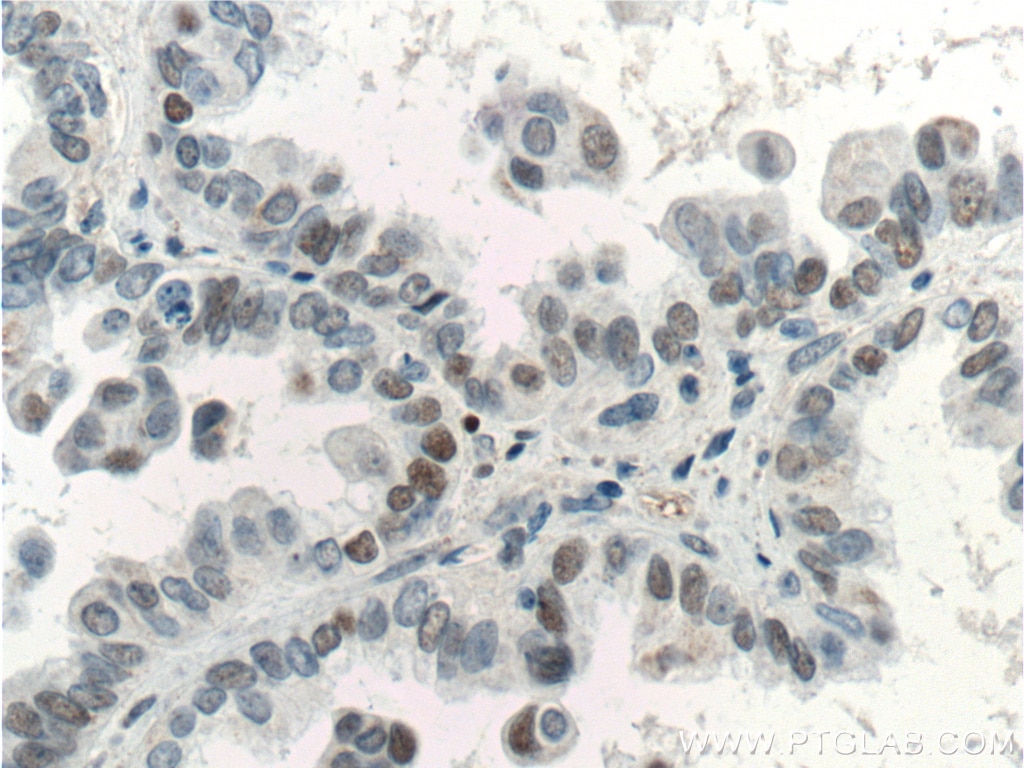- Featured Product
- KD/KO Validated
P53 Monoklonaler Antikörper
P53 Monoklonal Antikörper für ELISA
Wirt / Isotyp
Maus / IgG1
Getestete Reaktivität
human, Maus, Ratte
Anwendung
WB, IHC, IF/ICC, IP, ELISA
Konjugation
Unkonjugiert
CloneNo.
2D2F10
Kat-Nr. : 60283-1-Ig
Synonyme
Geprüfte Anwendungen
Veröffentlichte Anwendungen
| KD/KO | See 2 publications below |
| WB | See 27 publications below |
| IHC | See 1 publications below |
| IF | See 1 publications below |
| IP | See 1 publications below |
Produktinformation
60283-1-Ig bindet in WB, IHC, IF/ICC, IP, ELISA P53 und zeigt Reaktivität mit human, Maus, Ratten
| Getestete Reaktivität | human, Maus, Ratte |
| In Publikationen genannte Reaktivität | human, Maus, Ratte |
| Wirt / Isotyp | Maus / IgG1 |
| Klonalität | Monoklonal |
| Typ | Antikörper |
| Immunogen | P53 fusion protein Ag0698 |
| Vollständiger Name | tumor protein p53 |
| Berechnetes Molekulargewicht | 44 kDa |
| GenBank-Zugangsnummer | BC003596 |
| Gene symbol | P53 |
| Gene ID (NCBI) | 7157 |
| Konjugation | Unkonjugiert |
| Form | Liquid |
| Reinigungsmethode | Protein-G-Reinigung |
| Lagerungspuffer | PBS with 0.02% sodium azide and 50% glycerol |
| Lagerungsbedingungen | Bei -20°C lagern. Nach dem Versand ein Jahr lang stabil Aliquotieren ist bei -20oC Lagerung nicht notwendig. 20ul Größen enthalten 0,1% BSA. |
Hintergrundinformationen
TP53, also named as P53 and NY-CO-13, belongs to the p53 family. It has 9 isoforms. In SDS-Page, the MW is about 53kd. TP53 acts as a tumor suppressor in many tumor types; induces growth arrest or apoptosis depending on the physiological circumstances and cell type. It is involved in cell cycle regulation as a trans-activator that acts to negatively regulate cell division by controlling a set of genes required for this process. The antibody reacts specifically with 53 kDa protein.
Protokolle
| PRODUKTSPEZIFISCHE PROTOKOLLE | |
|---|---|
| WB protocol for P53 antibody 60283-1-Ig | Protokoll herunterladen |
| IHC protocol for P53 antibody 60283-1-Ig | Protokoll herunterladenl |
| STANDARD-PROTOKOLLE | |
|---|---|
| Klicken Sie hier, um unsere Standardprotokolle anzuzeigen |
Publikationen
| Species | Application | Title |
|---|---|---|
Mol Ther Nucleic Acids miR-552 Regulates Liver Tumor-Initiating Cell Expansion and Sorafenib Resistance. | ||
Oncogenesis MeCP2 facilitates breast cancer growth via promoting ubiquitination-mediated P53 degradation by inhibiting RPL5/RPL11 transcription. | ||
Cancer Lett TAZ regulates cell proliferation and sensitivity to vitamin D3 in intrahepatic cholangiocarcinoma.
| ||
Am J Cancer Res Asparaginyl endopeptidase (AEP) regulates myocardial apoptosis in response to radiation exposure via alterations in NRF2 activation. | ||
Am J Cancer Res Loss of BRMS2 induces cell growth inhibition and translation capacity reduction in colorectal cancer cells. | ||
Biochem Pharmacol Ketoplatin in triple-negative breast cancer cells MDA-MB-231: High efficacy and low toxicity, and positive impact on inflammatory microenvironment. |
